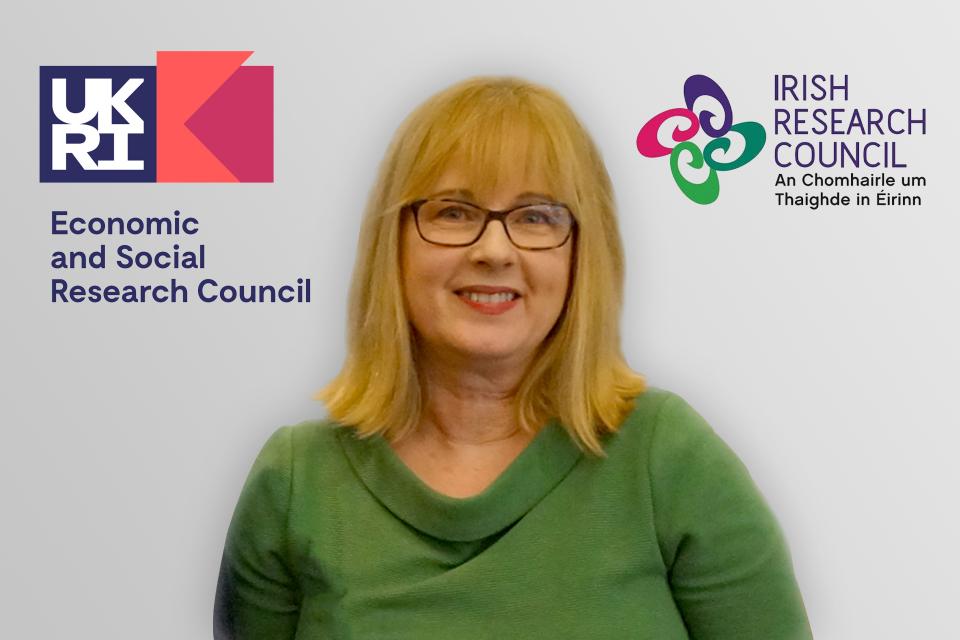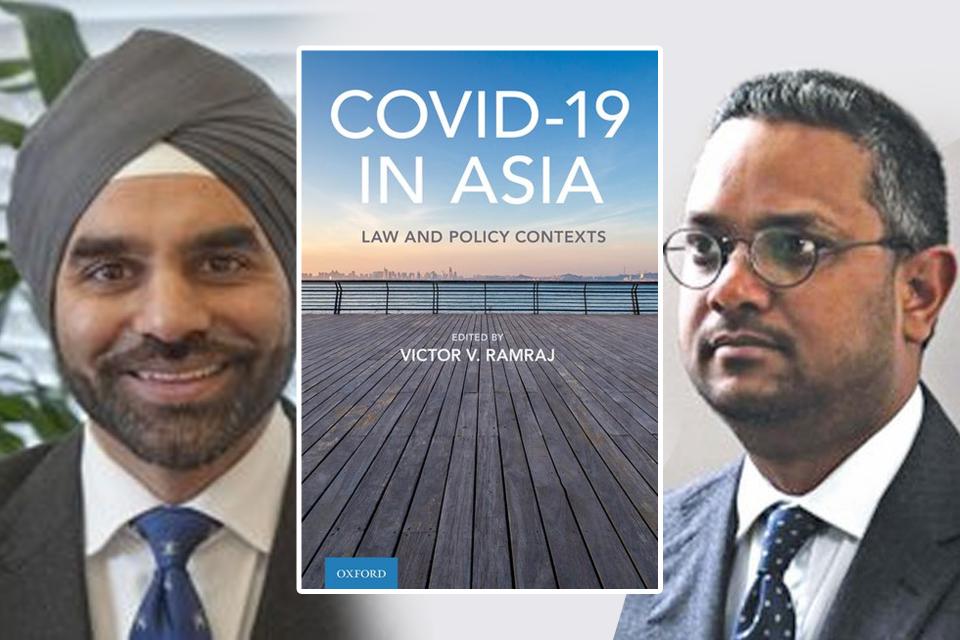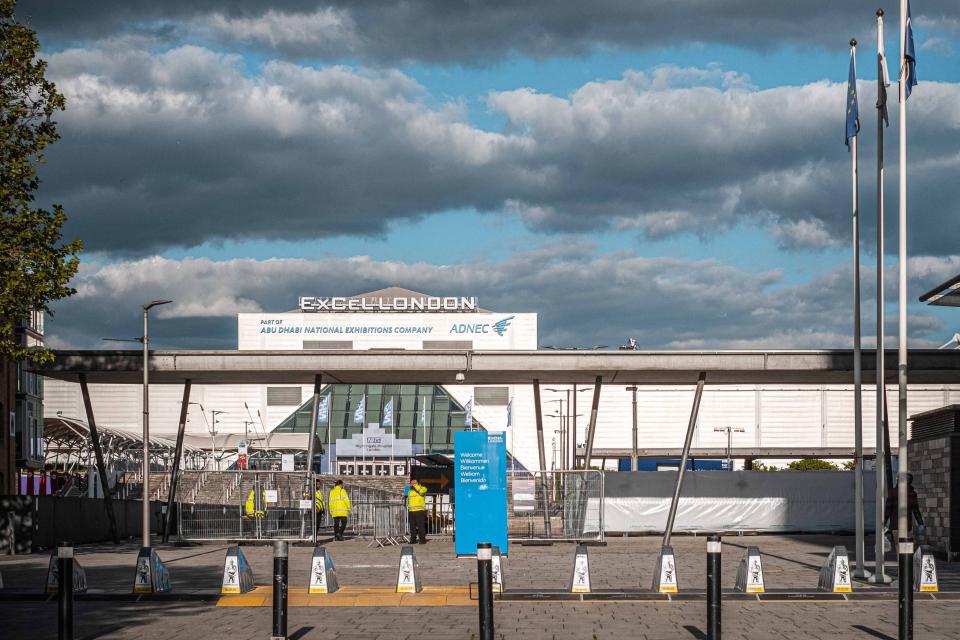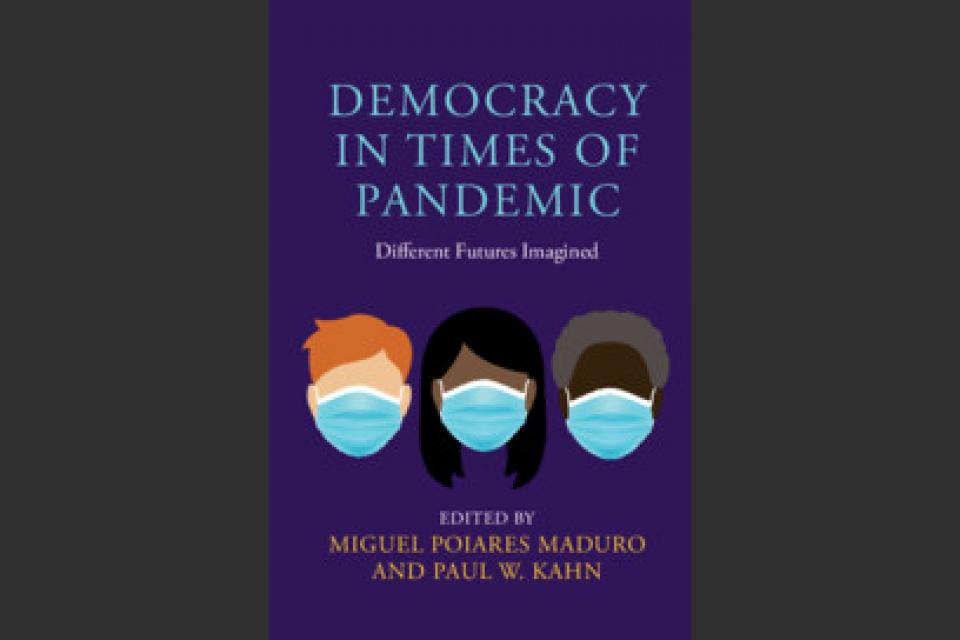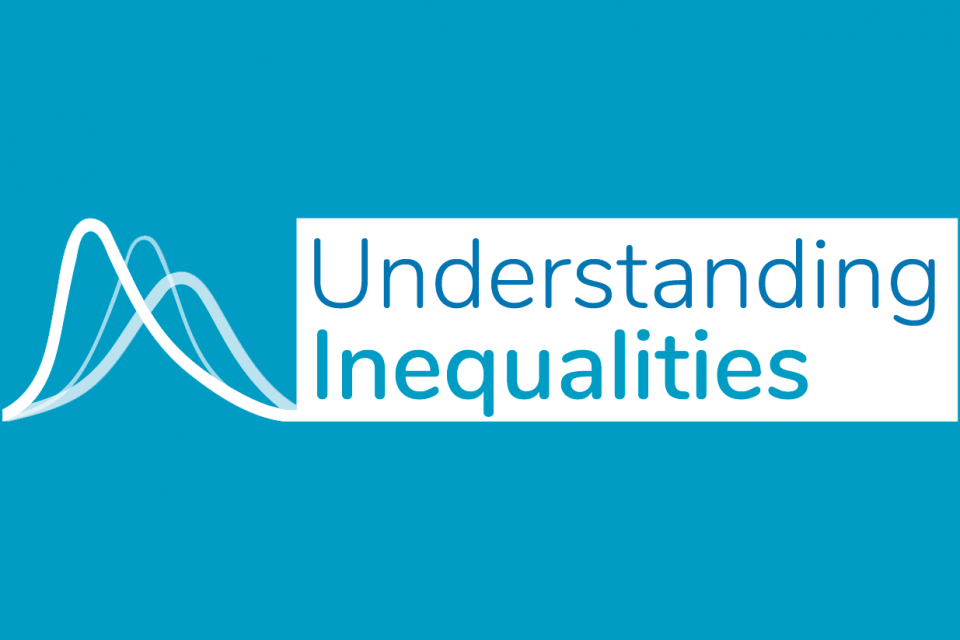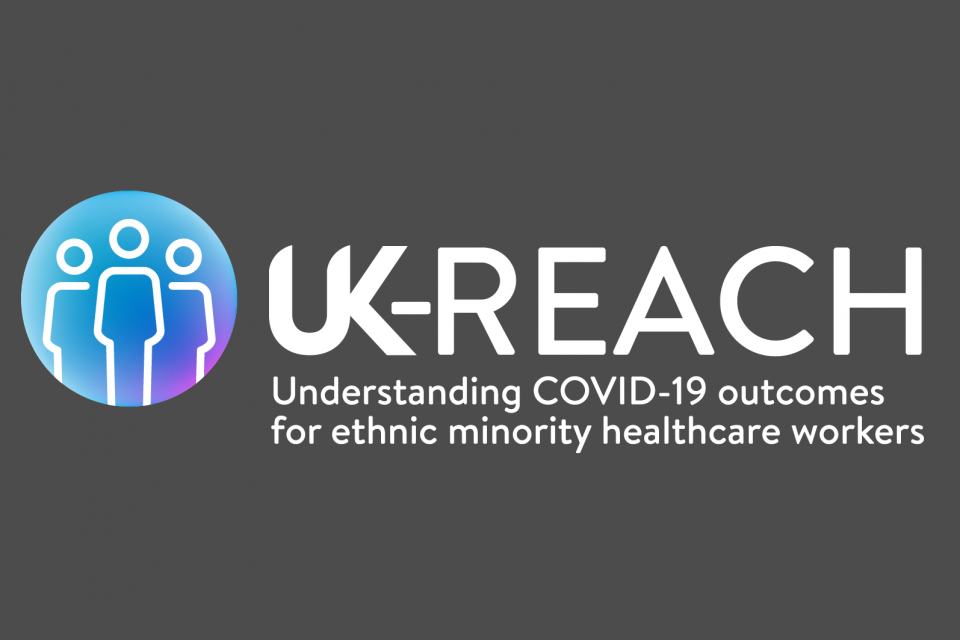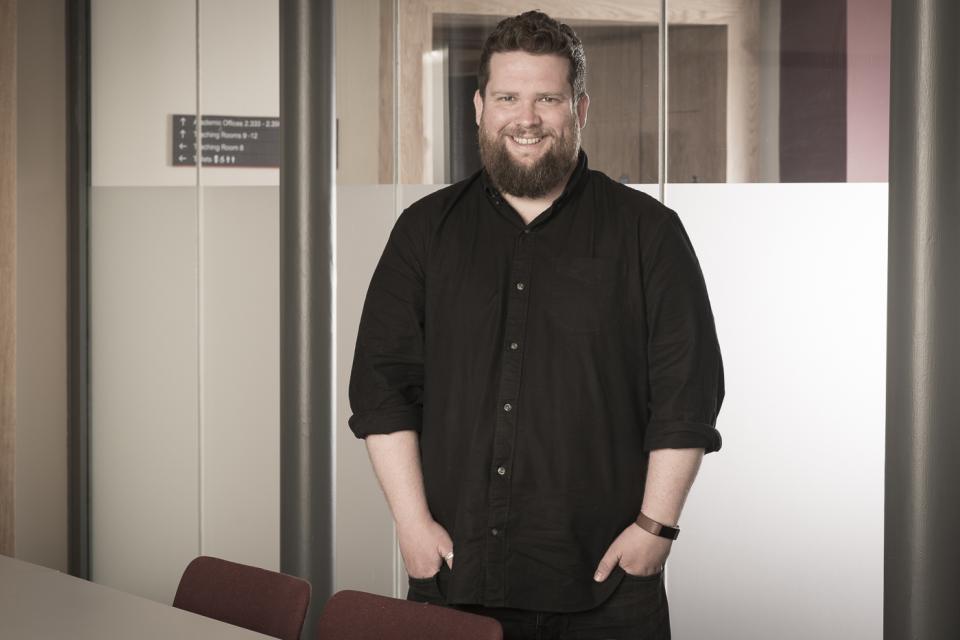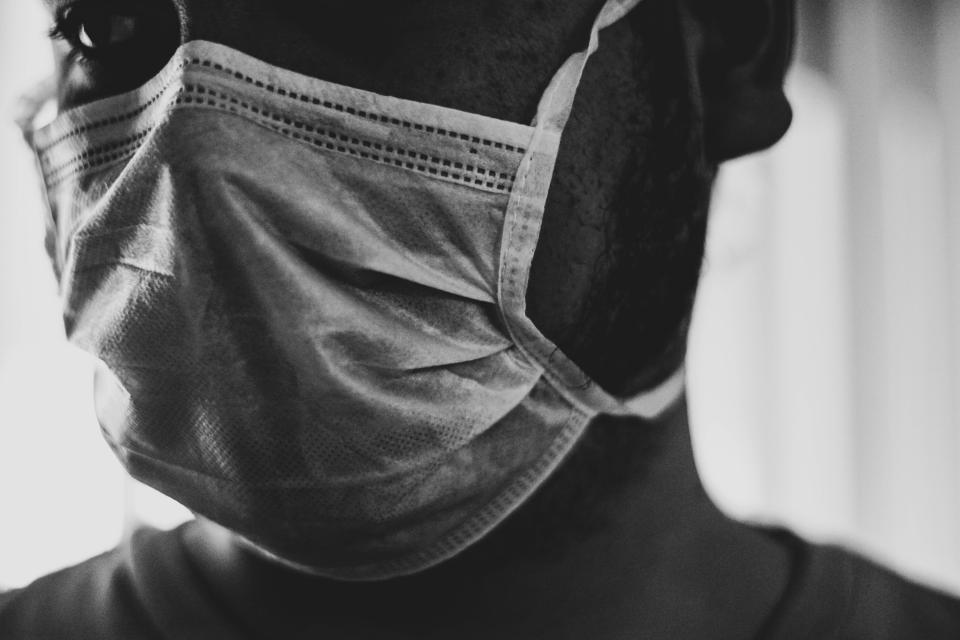Covid-19 research and engagement
Stay up-to-date on the Covid-19 related work taking place at Edinburgh Law School.

Dr Agomoni Ganguli-Mitra: Covid-19 Vaccine (Interview with Awaz FM, 26 May 2021)
Prof Susan McVie: Scots in most deprived areas 10 times more likely to get Covid fine (Daily Record, 23 February 2021)
Ms Rebecca Samaras: Covid-19: Free legal advice to meet surge in legal issues (Scottish Legal News, 10 December 2020)
Prof Anne-Maree Farrell: Vaccine nationalism: Why a partisan approach to Covid jabs could damage trust in them (iNews, 4 December 2020)
Dr Arpan Mehta and Ms Annie Sorbie: BAME doctors face COVID 'double hit' as pandemic drives rise in complaints (GP Online, 24 November 2020)
Ms Rebecca Samaras: Legal aid is beacon of humanity for industry gripped by pandemic cuts (The Times, 4 November 2020)
Dr Asanga Welikala: Sri Lanka’s president is amassing personal power (The Economist, 31 October 2020)
Dr Agomoni Ganguli-Mitra: Coronavirus: UK only buying enough vaccines to protect the most vulnerable (Sky News, 28 October 2020)
Dr Agomoni Ganguli-Mitra: COVID-19: UK only buying enough vaccines to protect the most vulnerable (Sky News YouTube channel; 28 October 2020)
Prof Susan McVie: Emergency powers to come under the spotlight at Covid-19 Committee (Police Professional, 4 September 2020)
Prof Susan McVie: Covid fines must be seen to be fair – leader comment (The Scotsman, 22 August 2020)
Prof Susan McVie: Coronavirus fines 12 times more likely in poorest areas (STV News, 21 August 2020)
Dr Asanga Welikala: Sri Lanka: Economy, human rights key challenges facing Rajapaksas (Al Jazeera, 19 August 2020)
Dr Asanga Welikala: Sri Lanka votes in pivotal election following coronavirus delay (Deutsche Welle, 5 August 2020)
Prof Christine Bell: Why Gender Provisions in Peace Agreements are Not Enough to Ensure Post-Conflict Progress for Women (Council on Foreign Relations, 20 July 2020)
Prof Christine Bell: Wars rumble on despite pleas for ceasefire during pandemic (The Times, 9 July 2020)
Prof Christine Bell: Conflicts continue around globe despite Covid-19, research finds (Glasgow Times, 8 July 2020)
Prof Susan McVie: Police Scotland used emergency Covid powers 640 times a day (BBC News, 30 June 2020)
Dr Kasey McCall-Smith: 'Unfathomable' lack of schooling likely to breach Scottish children's rights, says government adviser (The Telegraph, 22 June 2020)
Dr Asanga Welikala: Sri Lanka prepares for twice-delayed poll amid militarized COVID-19 response (Global Voices, 21 June 2020)
Dr Asanga Welikala: Coronavirus keeps Sri Lanka without a functioning parliament (DW, 29 May 2020)
Dr Asanga Welikala: When the Pandemic is a Portal to Militarization (Groundviews, 30 May 2020)
Dr Asanga Welikala: Sri Lanka stares at constitutional crisis as polls delayed (Al Jazeera, 22 May 2020)
Prof Emilios Avgouleas: The SNF DIALOGUES Discussed the Impacts of COVID-19 on the Global Economy and what Comes Next (The National Herald, 15 May 2020)
Prof Christine Bell: The effects of Covid-19 ceasefires and how crises can impact peace, for better or worse (Good Morning Scotland, BBC, 13 May 2019)
Dr Asanga Welikala: Holding elections after June 2 prima facie unconstitutional: expert (EconomyNext, 6 May 2020)
Dr Asanga Welikala: Constitutional Crisis looms as poll date goes beyond three months of dissolution (EconomyNext, 23 April 2020)
Prof Susan McVie: Emergency powers advisory group meets for first time (Edinburgh Reporter, 17 April 2020)
Prof Emilios Avgouleas: The Bank Backstop: Can Europe’s Lenders Weather the Coronavirus Crisis? (Wall Street Journal, 14 April 2020)
Prof Emilios Avgouleas: Could the world be heading for another financial crisis? (Counting the Cost programme, Al Jazeera, 12 April 2020)
Dr Asanga Welikala: As Pandemic Rages, Sri Lanka’s President Pardons a War Criminal (New York Times, 28 March 2020)
Dr Asanga Welikala: COVID-19: Southasian states of emergency (Himal Southasian, 26 March 2020)
Prof Christine Bell: UN Chief's Call for Global Ceasefire Gathering Support (UN Insider, 25 March 2020)
Prof Emilios Avgouleas: Fears Intensify Over European Banks’ Ability to Weather Coronavirus Crisis (Wall Street Journal, 16 March 2020)
Dr Catriona McMillan: Evidence to the Scottish Parliament’s COVID-19 Recovery Committee on the proposed mandated vaccine certification scheme in Scotland (16 September 2021)
Prof Susan McVie, Dr Kath Murray and Dr Ben Matthews: How did Scotland police the pandemic? (Covid-19 Perspectives, 21 July 2021)
Political Settlement Research Programme: One year on, has conflict paused for the pandemic? (PSRP Website, 23 March 2021)
Prof Graeme Laurie: COVID-19: UK Government inaction raises serious human rights concerns (The Motley Coat, 18 November 2020)
Prof Emilios Avgouleas and Prof Aggelos Kiayias: The Architecture of Decentralised Finance Platforms in the Post COVID-19 Era — A New Open Finance Paradigm (Oxford Business Law Blog, 22 October 2020)
Dr Emmanuel Oke: Suspending TRIPS to Fight COVID-19? (Emmanuel Oke Blog, 2 October 2020)
Prof David Cabrelli and Jessica D'alton: Common Law Frustration and Redundancy in the Context of Covid-19 Furlough (UK Labour Law blog, 1 September 2020)
Political Settlements Research Programme: Webinar - WiSTEM Connect [5]: Can PeaceTech end conflict during Covid-19? (EUWiSTEM Society, 30 August 2020)
Prof Douglas Arner, Prof Emilios Avgouleas and Dr Evan Gibson: Financial Stability, Resolution of Systemic Banking Crises and COVID-19: Toward an Appropriate Role for Public Support and Bailouts (Oxford Business Law Blog, 27 August 2020)
Dr Asanga Welikala and Roshan de Silva-Wijeyeratne: The Past and the Present in the (Re)Constitution of the State (Groundviews, 25 August 2020)
Annie Sorbie: Webinar - Embedding the Professional Duty of Candour (Patient Safety Seminar Series, Royal College of Surgeons of Edinburgh, 13 August 2020)
Dr Emmanuel Oke: Is the National Security Exception in the TRIPS Agreement a Realistic Option in Confronting COVID-19? (EJIL!Talk, 6 August 2020)
Raiman Al-Hamdani and Robert Wilson: Yemen’s Response to COVID-19: Part III (PSRP Blog, 3 August 2020)
Raiman Al-Hamdani and Robert Wilson: Yemen’s Response to COVID-19: Part II (PSRP Blog, 29 July 2020)
Raiman Al-Hamdani and Robert Wilson: Yemen’s Response to COVID-19: Part I (PSRP Blog, 27 July 2020)
Dr Juline Beaujouan and Eyas Ghreiz: Towards a greater role of the civil society in conflict settlement in Syria after Covid-19? (Civil Society Platform for Peacebuilding and Statebuilding, 22 July 2020)
Political Settlements Research Programme: Data reveals effect of coronavirus pandemic on war and peace around the world (PSRP press release, 8 July 2020)
Dr Agomoni Ganguli-Mitra: The need to unpack vulnerability in a pandemic (The BMJ Opinion, 3 July 2020)
Dr Agomoni Ganguli-Mitra: Webinar - Ethical implications of antibody testing and “immunity certification" (Nuffield Council on Bioethics, 2 July 2020)
Dr Kathryn Nash: Responses by African Intergovernmental Organisations to COVID-19 (PSRP Blog, 24 June 2020)
Prof Hector MacQueen: The Covid-19 Pandemic, Contracts, and Change of Circumstance: still room for equitable adjustment? (Edinburgh Private Law Blog, 24 June 2020)
Laura Wise, Dr Juline Beaujouan, Tim Epple and Robert Wilson: Scratching below the surface: what can local peace agreements tell us about armed groups and conflict fragmentation? (Armed Groups and International Law, 21 June 2020)
Dr Juline Beaujouan and Eyas Ghreiz: Syria: local agreements, regional rivalry and a global pandemic (openDemocracy, 19 June 2020)
Dr Richard Jones, et al: Local policing must adapt to cybercrime in the post-pandemic era, write Ben Collier, Shane Horgan, Richard Jones and Lynsay Shepherd (Covid-19 Perspectives, 9 June 2020)
Prof David Cabrelli and Jessica D'alton: Furlough and Common Law Rights and Remedies (UK Labour Law blog, UCL Laws, 8 June 2020)
Dr Paolo Cavaliere: Fake News and Media Freedom During the Covid-19 Pandemic (Policing the Lockdown blog, Scottish Institute for Policing Research, 5 June 2020)
Dr Agomoni Ganguli-Mitra and Rebecca Richards, et al: Imagining Life with "Immunity Passports": Managing Risk During a Pandemic (Discover Society, 1 June 2020)
Rebecca Richards: The NHS is a health system not a charity. It should be funded accordingly (Global Health Emergencies blog; 28 May 2020)
Prof Emilios Avgouleas: COVID-19 exposes the limits of debt-driven capitalism, writes Emilios Avgouleas (Covid-19 Perspectives, 26 May 2020)
Prof Jo Shaw: The pandemic and the people: a short essay (Medium, 20 May 2020)
Prof Anne-Maree Farrell: Webinar - Managing the Dead and the Covid-19 Pandemic Ethics, Rights and Regulation (QUB School of Law, 6 May 2020)
Dr Agomoni Ganguli-Mitra and Ms Rebecca Richards, et al: What does it mean to be made vulnerable in the era of COVID-19? (The Lancet, 27 April 2020)
Dr Cormac Mac Amhlaigh: Legitimacy in the Time of Coronavirus (Verfassungsblog, 17 April 2020)
Dr Agomoni Ganguli-Mitra: Is the Coronavirus Pandemic Worse for Women? (Thinking Out Loud video series, University of Oxford, 17 April 2020)
Dr Catriona McMillan and Dr Victoria Sobolewska: DNACPRs and advance care planning in the COVID19 pandemic: key lessons (The Motley Coat, 16 April 2020)
Prof Emilios Avgouleas: COVID-19 Lays Bare the Limits of Debt Capitalism (Centre for International Governance Innovation, 16 April 2020)
Anna Christie: A COVID-19 Index Fund—The New Fearless Girl? (Oxford Business Law Blog, 10 April 2020)
Dr Agomoni Ganguli-Mitra and Dr Alexis Paton: Anyone can get coronavirus – but how you fare depends a lot on who and where you are (The Independent, 8 April 2020)
Dr Asanga Welikala and Suren Fernando: Balancing efficiency with law and liberty: Dealing with the pandemic without democratic backsliding (Daily FT, 8 April 2020)
Dr Agomoni Ganguli-Mitra: Social justice may be our greatest antidote (University of Edinburgh, 6 April 2020)
Mr Eamon Keane: Alarm bells ring over hearsay proposals (Scottish Legal News, 1 April 2020)
Dr Asanga Welikala and Suren Fernando: Public finance in times of crisis: The constitutional functions of President and Parliament (Daily FT, 31 March 2020)
Prof Stephen Tierney and Prof Jeff King: The Coronavirus Bill (UK Constitutional Law Blog, 24 March 2020)
Prof Christine Bell: COVID-19 and Violent Conflict: Responding to Predictable Unpredictability (Just Security, 24 March 2020)
Prof Graeme Laurie: The COVID-19 pandemic: are law and human rights also prey to the virus? (Covid-19 Perspectives, 17 March 2020)
Prof Graeme Laurie has been appointed to the Arts and Humanities Reseach Council (AHRC) Covid-19 expert peer review group.
Prof Susan McVie has been appointed to the new Independent Advisory Group to look at Police Scotland’s use of new emergency powers to tackle the coronavirus. It is chaired by leading human rights lawyer John Scott QC Solicitor Advocate.
Read more about the Indepedent Advisory Group
Dr Agomoni Ganguli-Mitra has been invited to be a member of the Ethics Group of the German Pubilc Health Covid-19 Network.
A Public Health, Ethics and Law Research Network
Governmental responses to the legal, policy and ethical issues raised by the pandemic have varied within the four nations of the UK, and between the UK and Ireland. Despite COVID-19 not recognising geographical borders, longstanding North-South tensions have also contributed to different responses to managing the risks posed by the pandemic on the island of Ireland. Against this background, the COVID-19 pandemic offers a unique opportunity to re- think how we should understand the relationship between public health, ethics and law in the UK and Ireland, informed by a range of academic and public health practitioner perspectives.
Led by Prof Anne-Maree Farrell and Prof Mary Donnelly (Professor of Law at University College Cork, Ireland), this joint ESRC/IRC-funded project will bring together these differing perspectives to gain a better understanding of this relationship and establish a new public health ethics and law research network (PEHL) in the UK and Ireland.
Cardographer Online - Digitising Intelligent Card Based Tools
Led by the University of Nottingham’s Mixed Reality Lab and partnering with the University of Edinburgh and Shanghai Jiaotong University, Dr Lachlan Urquhart is part of a new Universitas 21 project that seeks to digitise intelligent card-based tools. Dr Urquhart will lead on one of the three online user studies strands, based on the Moral-IT card decks he developed, which were created to enable structured reflection on legal, ethical, technical and social implications of new information technologies.
The Covid-19 pandemic has been the impetus for the extension of the project, as the use of such card decks have been part of physical workshops not currently feasible in the current global situation. The ultimate goal will be to develop accessible and agile digital versions of the Cardographer card tools to be distributed and used by participants regardless of where they are in the world.
Justice in Global Health Emergencies and Humanitarian Crises
Global Health Emergencies (GHEs) are crises that affect health, and that are, or should be, of international concern. These might include infectious outbreaks, humanitarian crises and disasters, conflicts, and forced displacements. GHEs are characterised by various forms of urgency and uncertainty, and are known to exacerbate existing inequalities, injustices and vulnerabilities in individuals and communities.
Dr Agomoni Ganguli-Mitra is the PI of a Wellcome Trust Seed Award Project entitled, ‘Vulnerability and justice in global health emergency regulation: developing future ethical models,’ which is currently working on several pieces on the subject of COVID-19.
Legal and Ethical Dimensions of Covid-19 and Providing Professional and Public Guidance
Prof Anne-Maree Farrell and Dr Edward Dove are working in collaboration with Prof John Coggon of the University of Bristol Law School, who has secured funding from the University of Bristol’s Elizabeth Blackwell Institute to track, analyse, and advise on developments in health policy and practice in light of Covid-19. The project is entitled “Covid-19: Explaining the Legal and Ethical Dimensions and Providing Professional and Public Guidance”.
Working with colleagues across the UK’s four nations, and alongside an international advisory group, the project will track and systematise the early run of legislative and policy responses to Covid-19 in health policy and practice contexts; develop explanatory materials and analysis of existing and emerging (including latent) points of law, regulation, and policy (including professional ethical guidance); critically assess the consistency of policy and practice with the UK’s ethical framework for pandemic planning; fundamentally assess the consistency of these materials with basic commitments to the rule of law and human rights; and contribute to processes of reflexive governance for and of health professionals (i.e. through advice on developing policy and practice).
Policy Brief: COVID-19: Explaining the Legal and Ethical Dimensions and Providing Professional & Public Guidance
MobilitySafe
Dr Devanjan Bhattacharya is leading an ESRC IAA project, ‘Increasing safety and sustainability of micro-mobility modes in pandemic – MobilitySafe.’ In times of pandemic and conflict public transport and vehicle sharing services are frequently halted or avoided, and many people turn to cycling or walking for small distances. By partnering and working with urban development companies and agencies, such as GIZ India and Deloitte India, alongside local authorities, MobilitySafe aims to provide an open app and web-based utility to help users determine safe walking and cycling routes that avoid transmission spots or conflict zones.
Proposed Protections for Digital Interventions in Relation to Immunity Certificates
Prof Burkhard Schafer is part of a group of academics, who under the editorship of Prof Lilian Edwards (Newcastle University) developed a model "Coronavirus (Safeguards) Bill 2020: Proposed protections for digital interventions and in relation to immunity certificates." The proposal was presented to the the Science and Technology Committee, and also referenced approvingly by the UK’s Biometrics Commissioner. The model Bill has by now been translated into Spanish and French, while Prof Schafer is translating and adopting it for a German version.
Read the Biometrics Commissioner's statement on the use of symptom tracking applications
PSRP COVID-19 and Conflict Research
The Political Settlements Research Programme (PSRP) is working on a number of initiatives relating to the impact of Covid-19, and associated response policies, on peace processes and armed conflict. Much of this work is in early stages and more information will be published in due course.
Read more about the PSRP's Covid-19 research projects
Intergovernmental responses to Covid-19 in the Global South
PSRP researcher Dr Kathryn Nash has been awarded funding for a research project on Covid-19 related challenges to study the responses of Global South regional and sub-regional organisations to the Covid-19 crisis.
UK Employment Law and Job Retention
Prof David Cabrelli is undertaking a project on the impact of the UK's Coronavirus Job Retention Scheme (CJRS) on UK Employment law. The research will complement existing scholarship which has assessed the effect of the small print of the Direction and also the effect of the CJRS on the statutory employment protection rights of ‘employees’ with a contract of employment. Additionally, it will look further at the effect of the CJRS on ‘workers’, ‘agency workers’, ‘zero-hours contract workers’ and ‘gig economy workers’ who do not necessarily have a contract of employment with their employers and as such, are not ‘employees’, as well as the common law rights of employees and other workers.
Read more about the Direction issued by the Government to HMRC
As part of this work, Prof Cabrelli and Jessica D'alton have published a blog on 'Furlough and Common Law Rights and Remedies' on the UK Labour Law blog, which considers the effect of the UK Government's furlough scheme on the common law rights of employees and workers. Following its publication, its content has been picked up by, and discussed in, the House of Commons Library Briefing Paper 8880.
Read the blog post, 'Furlough and Common Law Rights and Remedies'
Read the House of Commons Library Briefing Pare 8880
UK-REACH: Understanding Covid-19 outcomes for ethnic minority healthcare workers
Jointly funded by UK Research and Innovation (UKRI) and the National Institute for Health Research (NIHR), the University of Leicester-led UK-REACH study (UK Research study into Ethnicity And COVID-19 outcomes in Healthcare workers) will work with more than 30,000 clinical and non-clinical members of staff to assess their risk of COVID-19, based on the analysis of two million healthcare records.
Led by Dr Manish Pareek, Associate Clinical Professor in Infectious Diseases at the University of Leicester and Honorary Consultant in Infectious Diseases at University Hospitals of Leicester NHS Trust, the UK-REACH study will follow a group of healthcare workers from BAME backgrounds for a period of 12 months to see what changes occur in their physical and mental health, how they have changed their professional and social behaviours in response to COVID-19, and how risky their jobs are. The study will also include non-clinical staff integral to the day to day running of healthcare institutions, including cleaners, kitchen staff and porters.
As part of the project, Dr Edward Dove will lead the research strand seeking to understand and address legal, ethical and acceptability issues around data protection, privacy and information governance associated with the linkage of health workers’ registration data and healthcare data.
Visit the UK-REACH project website
Book chapters
Walker, N. (2020). The Crisis of Democratic Leadership in Times of Pandemic. In M. Maduro & P. Kahn (Eds.), Democracy in Times of Pandemic: Different Futures Imagined (pp. 23-37). Cambridge: Cambridge University Press. View chapter
Desai, D., Randeria, S., & Lutringer, C. (2020). Redefining Vulnerability and State–Society Relationships during the COVID-19 Crisis: The Politics of Social Welfare Funds in India and Italy. In M. Maduro & P. Kahn (Eds.), Democracy in Times of Pandemic: Different Futures Imagined (pp. 182-195). Cambridge: Cambridge University Press. View chapter
Christie, A, "COVID-19 Index Fund – The New Fearless Girl?" in Eidenmüller, Enriques, van Zwieten, Helleringer (eds), COVID-19 and Business Law (CH Beck / Hart, 2020), pp. 33 View chapter
Fonseka, B., Ganeshathasan, L., Welikala, A. (2020). Sri Lanka: Pandemic-Catalysed Democratic Backsliding. In VV Ramraj (ed.), Covid-19 in Asia: Law and Policy Contexts. Oxford University Press. View volume
Ghaleigh, NS. & Burrows, L. (2020). Reset or Revert in the New Climate Normal. In VV Ramraj (ed.), Covid-19 in Asia: Law and Policy Contexts. Oxford University Press. View volume
Journal articles
Mishra, Sumit, Nikhil Singh, and Devanjan Bhattacharya. 2021. "Application-Based COVID-19 Micro-Mobility Solution for Safe and Smart Navigation in Pandemics" ISPRS International Journal of Geo-Information 10, no. 8: 571. View article
Richardson, L. (Accepted/In press). The impact of COVID 19 on service charges in commercial properties. Journal of Building Survey, Appraisal and Valuation, 10(1). View article
Hardman, J. (Accepted/In press). The law and economics of lockdown mitigation: Bankruptcy errors in the UK. International Insolvency Review. View article
Angela Ballantyne & Agomoni Ganguli-Mitra (2021) To What Extent Are Calls for Greater Minority Representation in COVID Vaccine Research Ethically Justified?, The American Journal of Bioethics, 21:2, 99-101. View article
Laurie, G.T. Bidding farewell to 2020: what lessons have we learned and what can bioethics continue to teach us?. ABR 12, 375–378 (2020). View article
Mehta, A. R., Szakmany, T., & Sorbie, A. (2020). The medicolegal landscape through the lens of COVID-19: time for reform. Journal of the Royal Society of Medicine. View article
Frowde, R., Dove, E.S. & Laurie, G.T. Fail to Prepare and you Prepare to Fail: the Human Rights Consequences of the UK Government’s Inaction during the COVID-19 Pandemic. ABR (2020). View article
Walker, Neil, The Crisis of Democracy in a Time of Crisis (July 3, 2020). Edinburgh School of Law Research Paper No. 2020/15. View article
Avgouleas, Emilios and Kiayias, Aggelos, The Architecture of Decentralised Finance Platforms: A New Open Finance Paradigm (August 3, 2020). Edinburgh School of Law Research Paper No. 2020/16. View article
Desai, D and Randeria, S, 'Unfreezing unspent social special-purpose funds for the Covid-19 crisis: Critical reflections from India.' World Development, Volume 136, 2020, 105138. View article
Arner, Douglas W. and Avgouleas, Emilios and Gibson, Evan Corby, Financial Stability, Resolution of Systemic Banking Crises and COVID-19: Toward an Appropriate Role for Public Support and Bailouts (August 1, 2020). University of Hong Kong Faculty of Law Research Paper No. 2020/044. View article
AM Farrell and P Hann, 'Mental health and capacity laws in Northern Ireland and the COVID-19 pandemic: Examining powers, procedures and protections under emergency legislation.' International Journal of Law and Psychiatry 71 (2020) 101602. View article
Walker, Neil, The Crisis of Democracy in a Time of Crisis (July 3, 2020). Edinburgh School of Law Research Paper No. 2020/15. View article
Ganguli-Mitra A, Young I, Engelmann L et al. Segmenting communities as public health strategy: a view from the social sciences and humanities [version 1; peer review: 1 approved]. Wellcome Open Res 2020, 5:104. View article
Reports and briefing notes
Sir David Edward, Dr Robert Lane and Dr Leandro Mancano: EU law in the time of COVID-19 (European Policy Centre, 4 September 2020)
Dr Rebecca Sutton, et al: Community Views on the Impact of Covid-19 in Rohingya Camps (PSRP Research Report: Covid-19 Series, August 2020)
Prof Susan McVie: Data report on Police Use of Fixed Penalty Notices under the Coronavirus Regulations in Scotland (Understanding Inequalities, 19 August 2020)
Prof Anne-Maree Farrell and Dr Edward Dove, et al: COVID-19: Explaining the Legal and Ethical Dimensions and Providing Professional & Public Guidance (Faculty of Public Health, July 2020)
Prof Susan McVie, Dr Ana Morales and Dr Fernando Pantoja: Interim report on data for the Independent Advisory Group on Police Use of Temporary Powers related to the Coronavirus Crisis (Understanding Inequalities, 28 June 2020)
Dr Agomoni Ganguli-Mitra, et al: COVID-19 antibody testing and ‘immunity certification’ (Nuffield Council on Bioethics, 18 June 2020)
Dr Richard Jones, et al: The implications of the COVID-19 pandemic for cybercrime policing in Scotland: A rapid review of the evidence and future considerations (Research Evidence in Policing: Pandemics briefing series, Scottish Institute for Policing Research, May 2020)
Consultation responses
The Mason Institute for Medicine, Life Sciences and the Law provided a response to UK Parliament’s Human Rights (Joint Committee) call for evidence on the human rights implications of the UK Government’s response to COVID-19.
View the Mason Institute response
Conflict, Development and Covid-19
The Covid-19 pandemic is disproportionately affecting vulnerable populations around the world. The consequences of the virus on conflict-affected states are so powerful that United Nations Secretary General Antonio Guterres has called for a global ceasefire to stop violent conflict in support of the fight against novel coronavirus.
The Political Settlements Research Programme is committed to supporting communities experiencing violent conflict, and have put together a list of blogs and other resources addressing the Covid-19 pandemic from the perspective of conflict-affected states.
View the PSRP Conflict, Development and Covid-19 Resources page
Covid-19 Ceasefire Tracker
The Covid-19 Ceasefire Tracker monitors the progress of ceasefires alongside live data on infection rates in country. The data can be viewed in a timeline format, a search browse format, and a map format which also includes live data on infection rates in country.
View the Covid-19 Ceasefire Tracker
Covid Collective
The Political Settlements Research Programme is working with the UK’s Foreign Commonwealth and Development Office (FCDO) and a group of world leading organisations to develop urgently needed research that will support recovery from Covid-19. The FCDO-funded Covid Collective will commission urgent research to help tackle the social, political and economic impact of the pandemic. These include: Governance, Social Development, Inclusion, Conflict, Humanitarian and Environment. The research will be global with a particular focus on: The Middle East, Bangladesh, Uganda, Pakistan, Ethiopia, Kenya, Ghana, Malawi, Rwanda, Zambia, Zimbabwe, South Sudan, Sudan, Yemen, Iraq and Syria.
Learn more about the Covid Collective
Coronavirus and the Law in Europe
This project, to which Prof Hector MacQueen contributed, serves as a “toolbox” for domestic and European judges who will be dealing with the interpretation of coronavirus-related legislation and administrative measures, as well as the disruption the pandemic has caused on society and fundamental rights. It is also aimed at assisting businesses and citizens, who wish to be informed about the implications of the virus in the existence, performance, and enforcement of their contracts.
Read more on Intersentia Online
Policing the Lockdown Blog Series
Across the globe, authorities have instituted a wide range of measures in the name of controlling the spread of Covid-19. Many of those measures require fundamental shifts to our social, economic and political life. These shifts are being policed formally and informally by a wide range of actors, including the police, military, and civic groups. The ‘Policing the Lockdown’ blog series from the Scottish Institute for Policing Research shines a light on these policing practices and their impact.
